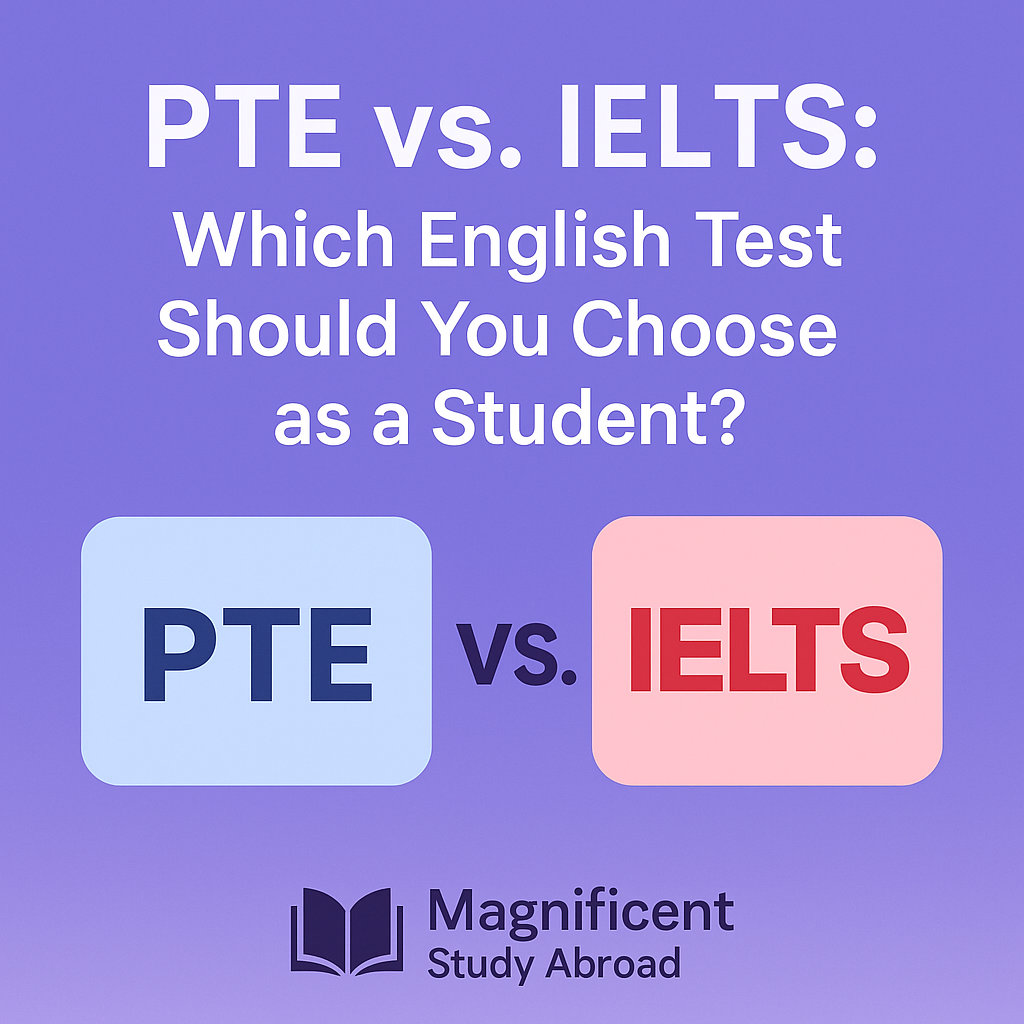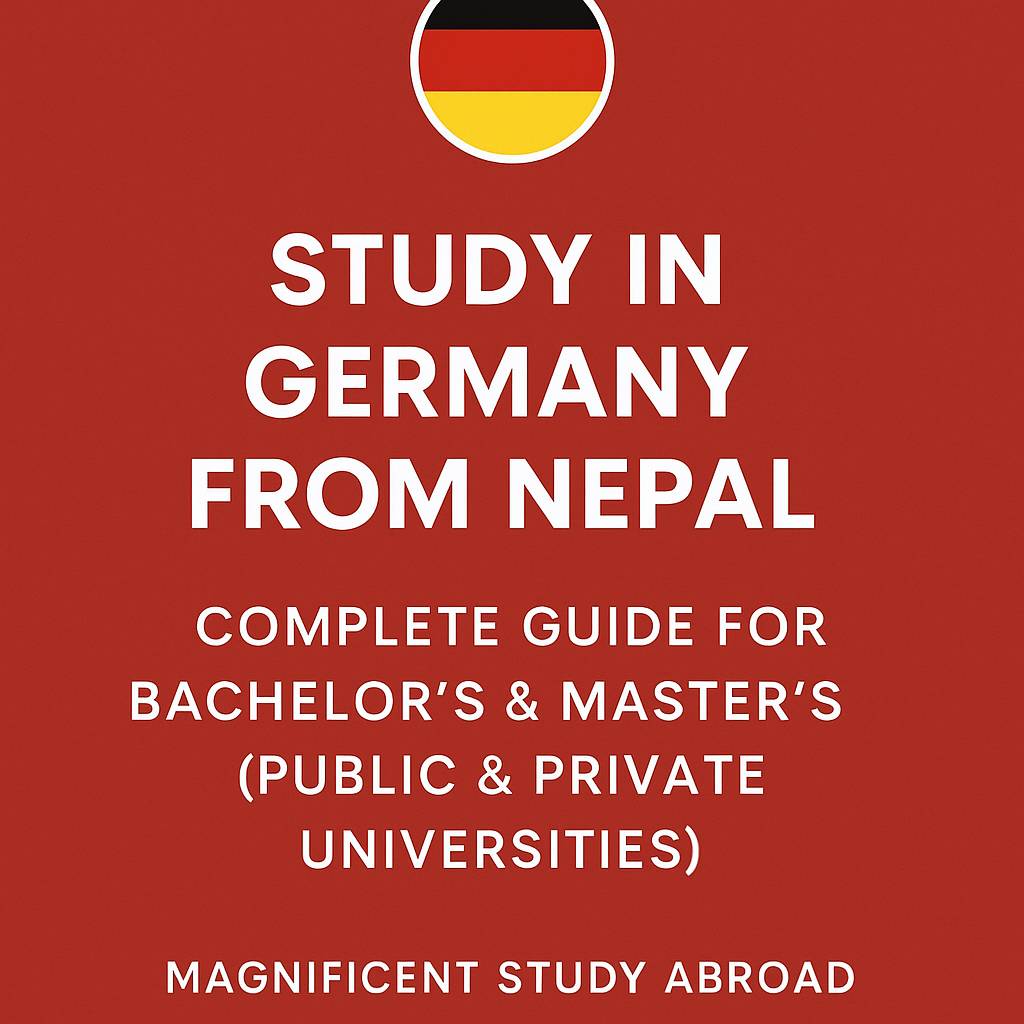If you’re planning to study abroad in countries like the UK, Australia, Canada, or the USA, proving your English proficiency is a key requirement. Two of the most popular English tests among international students are the PTE (Pearson Test of English) and the IELTS (International English Language Testing System). But which one should you choose?
In this blog, we’ll compare both tests in terms of format, scoring, difficulty, and more, so you can make the best decision based on your personal strengths and goals.
🔍 PTE vs. IELTS: A Detailed Comparison
| Feature | PTE (Pearson Test of English) | IELTS (International English Language Testing System) |
|---|---|---|
| Test Format | Completely computer-based | Paper-based or computer-based (Speaking is face-to-face) |
| Speaking Section | Recorded via microphone (talk to a computer) | Face-to-face with an examiner |
| Result Time | Fast – usually within 1 to 3 days | Slower – typically 5 to 7 days (up to 13 days for paper-based) |
| Scoring System | Automated scoring on a 0–90 scale | Human scoring on a 0–9 band scale |
| Test Duration | Around 2 hours | Around 2 hours 45 minutes |
| Accents Used | International English accents | British, Australian, American, and more |
| Difficulty Level | Tech-focused, fast-paced | More traditional and academic |
| Global Acceptance | Widely accepted in UK, Australia, Canada, New Zealand, USA | Universally accepted in all English-speaking countries |
| Availability | More test dates, flexible booking | Frequent dates, but can fill up fast |
| Test Environment | Computer lab with microphone and headphones | Classroom or computer lab; quiet room for speaking section |
✅ When to Choose PTE
You might prefer the PTE Academic if:
- You are comfortable with computers and typing.
- You are nervous about face-to-face speaking and prefer talking into a microphone.
- You need quick results to meet an application deadline.
- You prefer objective and automated scoring, with less human bias.
The PTE is ideal for students who are tech-savvy and want a quick, streamlined testing experience.
✅ When to Choose IELTS
You should consider the IELTS if:
- You feel more comfortable talking to a person during the speaking section.
- You prefer traditional-style exams, especially on paper.
- You’re applying to universities or visa authorities that specifically ask for IELTS.
- You want a test that is accepted almost everywhere, with a long-standing reputation.
The IELTS is suitable for students who want a globally recognized test and feel more at ease with human interaction and conventional exam formats.
📝 Final Thoughts: Which Is Better for You?
Both the PTE and IELTS are excellent choices, and both are recognized by top universities and immigration offices around the world. The best choice depends on your personal preferences, your comfort level with technology, and the specific requirements of the institutions you’re applying to.
✔️ Choose PTE if:
- You prefer a fast, fully computer-based test.
- You want faster results.
- You are more comfortable with automated evaluation.
✔️ Choose IELTS if:
- You prefer interacting with a human examiner.
- You want the option of a paper-based test.
- You need a test that is accepted everywhere.
Before booking your exam, check the requirements of your target university or immigration authority, as some may only accept one of these tests or have a preference.
Still unsure? Feel free to reach out to a study abroad advisor or message us with your questions—we’re here to help you make the right decision for your future.



